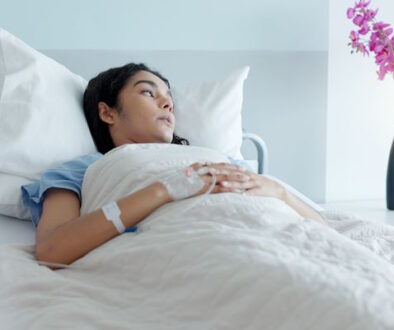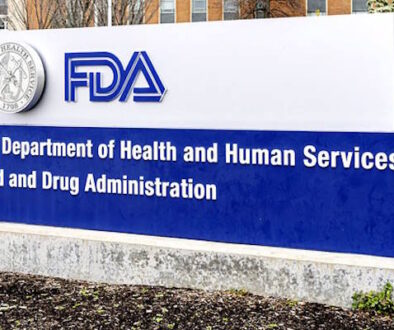School Reopening Mess Drives Frustrated Parents Toward GOP
Voters believed Democrats were best able to get the pandemic under control by a 9-percentage-point margin. But that was down from 16 points just four months earlier.
Democrat Jennifer Loughran spent the pandemic’s early days sewing face masks for neighbors. Last month, as a newly elected school-board member, she voted to lift the district’s mask mandate. That came four months after she voted for the state’s Republican candidate for governor.
After a monthslong political identity crisis, Ms. Loughran decided her opposition to her party’s mask mandates, economic restrictions and school-closure policies outweighed her support for positions on climate change, abortion and gay rights, at least for the moment.
Watching her daughter fall behind in virtual kindergarten, Ms. Loughran had grown so frustrated not knowing when her children would return to the classroom that she joined a group that attracted right-leaning parents in its school-reopening push. She was unhappy that Gov. Phil Murphy didn’t fight to reopen schools sooner, and she associated his fellow Democrats with mask mandates and restrictions.
She hasn’t decided which party to pick this fall in her local House race, a contest expected to help determine control of Congress. “What I do know,” she said, “is that my party-line vote shouldn’t be taken for granted anymore.”
The defection of once-loyal voters like Ms. Loughran—along with disapproval from independents—is among the challenges Democrats face in their bid to retain control of Congress and win state-level races in this November’s midterm elections. These voters say Democratic officials left pandemic restrictions in place too long and mishandled the health crisis, with devastating consequences for their children, while Republicans have generally pushed to minimize school closures and keep the economy open.
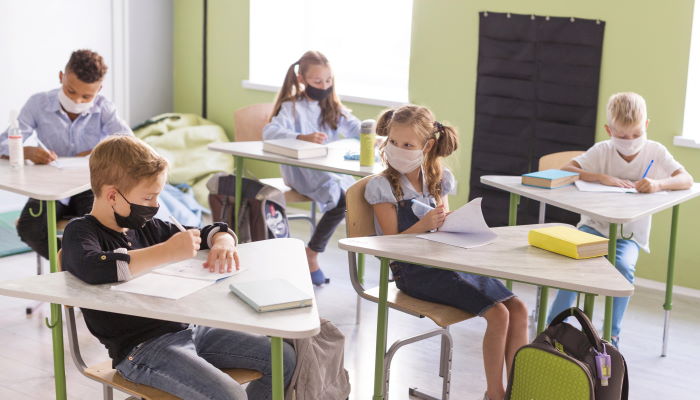
The party out of power usually wins midterm elections during a president’s first term. Public-opinion surveys signal that the trend is holding firm. A Wall Street Journal poll taken in March showed that 46% of U.S. voters plan to back Republican candidates for Congress, while 41% would support Democrats.
On the pandemic, the Journal poll showed voters believed Democrats were best able to get the pandemic under control by a 9-percentage-point margin. But that was down from 16 points just four months earlier.
Regionally, one of the most significant drops in the party’s pandemic-management approval was in the Northeast, where a 30-point edge for Democrats in November had dropped to 20 points last month, the Journal poll showed. The drop was driven mainly by independents, among whom the party’s 12-point advantage in the previous poll had evaporated. In the new survey, independent voters were split 29% to 29% over which party was best able to handle Covid-19.
Ms. Loughran, a 45-year-old skateboard instructor with red dip-dyed hair and a blue-collar upbringing, had speared an Obama-Biden sign into her suburban home’s lawn and waived a handmade placard at the Women’s March in New York during President Donald Trump’s first year in office.
Her party allegiance began to erode during lockdowns as she and her husband, Michael Loughran, juggled her oldest daughter’s virtual kindergarten, a toddler tolling countless iPad hours and an infant who was diagnosed with a deadly genetic disorder. Her vote for Jack Ciattarelli as New Jersey’s governor was the first time she had backed a Republican in a state or federal contest.
The shift in the New Jersey electorate last fall shocked the political establishment and nearly cost the incumbent Mr. Murphy a second term. Advisers to Mr. Murphy said the campaign underestimated Covid frustration inside the Democratic Party. After the election, in focus groups that Mr. Murphy’s team held to better understand why the race had been so close, Democratic voters articulated their pandemic exhaustion, the advisers said.
The governor has taken steps to address that exhaustion. Mr. Murphy, who had supported strict measures to stem Covid’s spread, was the first of several Democratic governors to lift statewide mask mandates. “We’ve still got people in the hospital in New Jersey, so it’s not like we’re down to zero,” Mr. Murphy said. “But there’s just enormous fatigue. And we’re trying to meet the moment without either overshooting it or undershooting it.”
Mr. Ciattarelli, on the campaign trail, said the governor should have done more to make the vaccine available to teachers sooner and reopen schools faster. Mr. Ciattarelli, in an interview, said he wouldn’t have come so close to winning without support from Democratic and independent voters and sensed that some of that backing was rooted in pandemic fatigue.
In the Virginia governor’s contest, Glenn Youngkin made parental involvement in schools a top issue and became the first Republican to win the seat in 12 years. His first major legislative action as governor was to end the state’s mask mandate in schools.
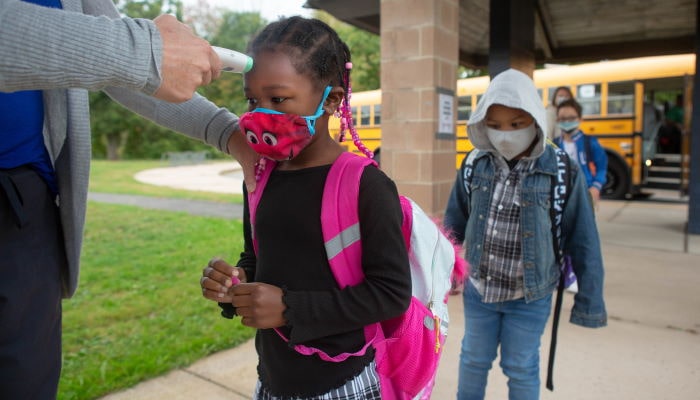
Democratic voters broadly support their party’s pandemic response. In a March poll from Rutgers University, 52% of voters graded Gov. Murphy’s Covid response as an “A” or “B,” the highest grade for any of the 11 issues tested in the poll. In the Journal’s national poll, 49% of voters said they approved of President Biden’s handling of the virus, among his highest approval ratings in a list of issues included in the survey.
Ms. Loughran’s husband, an unaffiliated voter who typically backs Democrats for state and federal office, said he shared his wife’s frustrations over the party’s Covid response. But he weighted that issue differently in his calculation to back Gov. Murphy for a second term. “I thought whoever was going to be in office would drop the mask mandates either way,” he said. “Some of that kind of stuff was going to take care of itself.”
Interviews with New Jersey voters revealed that some Democrats’ breaks from their party last fall were neither flippant nor fleeting. Many described personal struggles to stress what they viewed as the needs of their family or community over partisanship. For some, mandates over vaccines and masks violated personal convictions over choices about their health that sparked fears about other potential invasions of privacy. Others expressed a newfound nuance to their political approach, prompted by faith in the party that has been shaken but not yet forsaken.
Democratic voters who have broken from their party over Covid often describe decisions they reached only after wrestling with issues such as their support for abortion rights and opposition to gun control—political positions that have constituted the core of the party for years.
Among them is Gina Genovese, a longtime Democratic voter until November, when she cast her ballot for Mr. Ciattarelli. She ran for New Jersey governor as an independent in 2017 and was the state’s first openly gay mayor in 2006 when she presided over Long Hill, N.J., as a Democrat.
She said she was turned off by her party’s support for mask and vaccine mandates, which she viewed as violations of personal freedom. Last year, she helped finance a lawsuit that unsuccessfully attempted to strike Gov. Murphy’s mask requirement inside schools. This year, she has repeatedly turned down fundraising requests from the Democratic Party. “Democrats have left me so disillusioned,” she said.
Ms. Genovese described herself as “far-left” on global warming and gay rights and said it was a tough decision to support Republicans during the pandemic. She said she would probably back the Republican Thomas H. Kean Jr. for Congress this fall. “Everything is a balance,” she said.
“I’m a pro-choice person—my body, my choice,” she said, applying a common phrase from the debate over abortion to the issue of mask and vaccine mandates.
Bridgewater, an upper-middle-class suburb in northern New Jersey, last fall backed the GOP’s Mr. Ciattarelli by 5 percentage points over Mr. Murphy just one year after it delivered Joe Biden’s campaign a 12-point victory. Statewide, Mr. Murphy won by 3 percentage points; Mr. Biden won by 16 points.
Bridgewater is in New Jersey’s Seventh Congressional District, represented by Democrat Tom Malinowski, whose likely challenger is Mr. Kean, a former state lawmaker and son of a former New Jersey governor. The state legislature’s Democrats redrew the district this year, making several other districts safer for Democratic incumbents while jeopardizing Mr. Malinowski’s re-election. The district remains majority Democratic, but by a 3.7-point margin instead of 9.9 points.
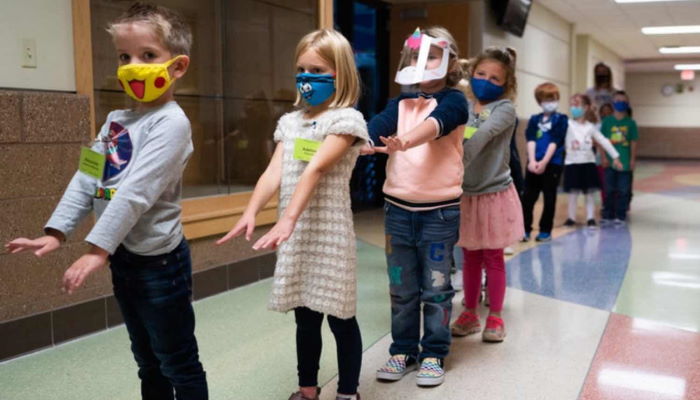
Mr. Malinowski pushed to reopen schools in early 2021, calling on the Biden administration to ensure teachers were among the first to be vaccinated and urging state officials to do the same. Still, he said, “There has been a lot of frustration over the impact on families and kids staying home that some Democrats were slow to recognize,” adding that “It’s natural and fair to hold the party in power accountable for what happens in the country.”
Mr. Kean said he has seen pandemic frustration manifest itself on the campaign trail as inflation has become a concern. “We lost an entire year of learning,” he said, “and New Jersey only got less and less affordable.”
Rachel Keane, a 35-year-old registered nurse and mother of two just outside the district in West Orange, N.J., said she had never voted Republican until last fall, when she opted for Mr. Ciattarelli and every other Republican candidate on her ballot. She worried about how her liberal parents would perceive her vote but described her decision as an awakening. She had always supported the party without a second thought, but her anger over the governor’s mask requirements for children made her question that loyalty.
“I knew I wasn’t going to vote for Murphy, but wasn’t sure if I was going to leave it blank or what,” she said. “Then I just got angry and in the back of my head I thought, ‘F— you!’ And I voted Republican all the way down the line.”
She said Mr. Murphy was too slow to push for a return to the classroom, which raised doubts for her about whether schools would open—and for how long. That stress prompted her to keep her 5-year-old in private daycare instead of sending him to kindergarten, which has cost her family about $1,200 a month. She said she remained distressed about her party and wasn’t sure how she would vote this fall.
Ben Ashfield and Tammy Tiranasar, self-described former liberals who now vote Republican, opened The Village Electric, a co-learning center in Mountainside, N.J., aimed at like-minded families during the pandemic. The center operates as a de facto school for home-school families, and it attracted parents and staff who wanted to be part of an education system that didn’t require masks or ask about vaccine status.
One of the teachers, 56-year-old Donna Davis, said she had been a Democratic voter until the pandemic, when the Republican push to keep the economy open made her more receptive to conservative candidates. When schools started requiring masks and pushing for vaccines, she didn’t want to do either to return to the classroom and thought her teaching days were behind her—until she heard about the learning center. She supported Mr. Ciattarelli and plans to vote Republican this fall.
For Ms. Loughran, a family health crisis magnified pandemic struggles. On March 13, 2020, the day President Trump declared the coronavirus a national emergency, the Loughrans learned their 11-month-old boy Finn had Tay-Sachs disease. The rare disorder attacks nerve cells and is what the Loughrans believed had taken their 14-month-old first child, Sylvia, in 2012.
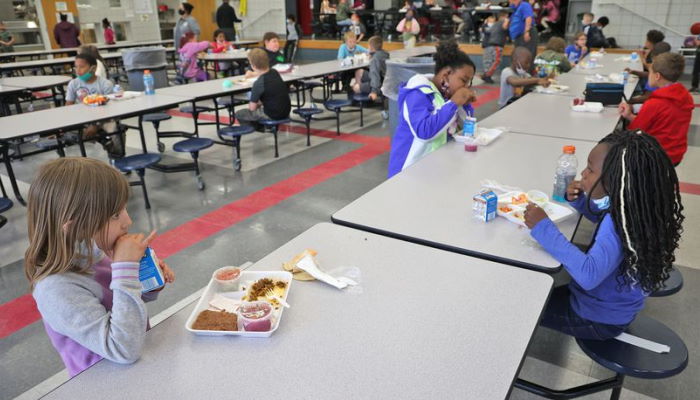
Ms. Loughran had learned to sew to cope with the heartbreak. After Finn’s diagnosis, her husband, a 42-year-old IT consultant, persuaded her to do something with the fabric scraps strewn around the house. She stitched a mask, a fox print inspired by her son’s nickname, Finny the Fox.
A picture of the mask on Facebook promoted an outpouring of help from friends and strangers who made and distributed more masks. She incorporated The Mask Squad, a nonprofit whose volunteers made up to 100 masks a day.
Finn’s treatment was grueling and isolating. Covid restrictions meant she was the only family member present when he was hospitalized. After doctors exhausted their options, her living room functioned as a classroom, playroom and hospice. Finn died at 17 months on Oct. 3, 2020, at home in his mother’s arms.
“It was impossible,” said Ms. Loughran, “and I had a lot of support.” She channeled her grief into working to return some normalcy by getting her daughters back to school. The eldest, Sarafina, was in first grade and still attending school virtually. The youngest, Eilish, would start kindergarten in the fall of 2021.
Ms. Loughran attended school-board meetings and began pushing for the schools to reopen. In March 2021, she was a featured speaker at a rally organized by parents who wanted the district to reopen schools full time. The issue was becoming her priority, but the only elected officials she saw when she looked around the rally were Republicans. The crowd chanted, “Facts over fear!”
“Jennifer brought a lot of energy and a lot of compassion,” said Adam Juechter, a 56-year-old software salesman involved with the open-schools group. “This was about the kids, not politics, and there was a level of credibility she was able to give the group and to our goal.”
Her Mask Squad was apolitical but attracted support from many neighborhood Democrats. The school group was mainly Republican parents such as Mr. Juechter. Their rally included speeches from conservative politicians including Mr. Ciattarelli, who had grown up in neighboring Raritan and represented the area as a state lawmaker.
Mr. Ciattarelli told the crowd he was concerned that parents had started pulling their children from public schools. The Loughrans had filled out paperwork to enroll their girls in a Catholic school, a significant step for Ms. Loughran, whose pride in her local district was so deep she had designed her skateboarding company’s logo with her high school’s colors.
“Everybody wanted their kids back in school—it wasn’t just Republicans,” Ms. Loughran said. “But we couldn’t stop fighting about it.” The debate felt like an ideological crisis, she said. “I didn’t understand where I fit.”
Ms. Loughran had a foot in the mask movement and another in the back-to-school effort, and friends from both persuaded her to run for school board. The idea of helping unify her neighborhood appealed to her.
Days before the gubernatorial election, she remained torn. She sharply disagreed with Mr. Ciattarelli’s views on climate change and social issues. He acknowledges climate change, but doesn’t support the progressive fixes Ms. Loughran backs. Both describe themselves as pro-choice, but Mr. Ciattarelli backs more restrictions than Ms. Loughran.
Mr. Loughran encouraged his wife to attend the Republican candidate’s rally in Bridgewater on the campaign’s final day. She viewed Mr. Ciattarelli as the “hometown guy” and liked that he pushed to reopen schools and didn’t attack Mr. Murphy in his speech.
When Mr. Ciattarelli vowed to win over the “1%” of the crowd that wasn’t already supporting him, Ms. Loughran’s friends from the school-reopening group gave her encouraging looks.
Ms. Loughran ran from the rally, still struggling with her vote and not wanting her presence captured by cameras. Her grandmother and aunts, staunch Democrats, had marched with Martin Luther King Jr. , and Ms. Loughran worried about betraying them. She weighed her support for Democratic positions on cultural issues and how her support for a Republican might disappoint her gay and transgender friends.
The next day, she cast her ballot for the Republican—what she described as a pragmatic calculation in which her family and community would be best served by the “local guy.”
Although Mr. Ciattarelli came up short, Ms. Loughran won a school-board seat in the nonpartisan race. She was sworn in during a virtual meeting in January with a picture of Finn behind her. In March, she celebrated a unanimous vote from the board to lift the mask mandate and has re-enrolled her daughters for next fall in the public elementary school she attended.
“The lesson I took away from this was that people are capable of rising to the occasion without being mandated by the government,” she said. “Government isn’t the solution. It’s a tool, and we need to be more skilled at using it.”
n February, Ms. Loughran had attended a meet-and-greet with Mr. Malinowski, the Democratic congressman. He made small talk with her about Skateistan, an international nonprofit group that teaches skateboarding to underprivileged kids, she said.
She joked that she was impressed by his skateboarding acumen but added that she still had more to learn before deciding how to vote this fall.
Source: https://www.foxnews.com/us/school-reopening-mess-drives-frustrated-parents-toward-gop


